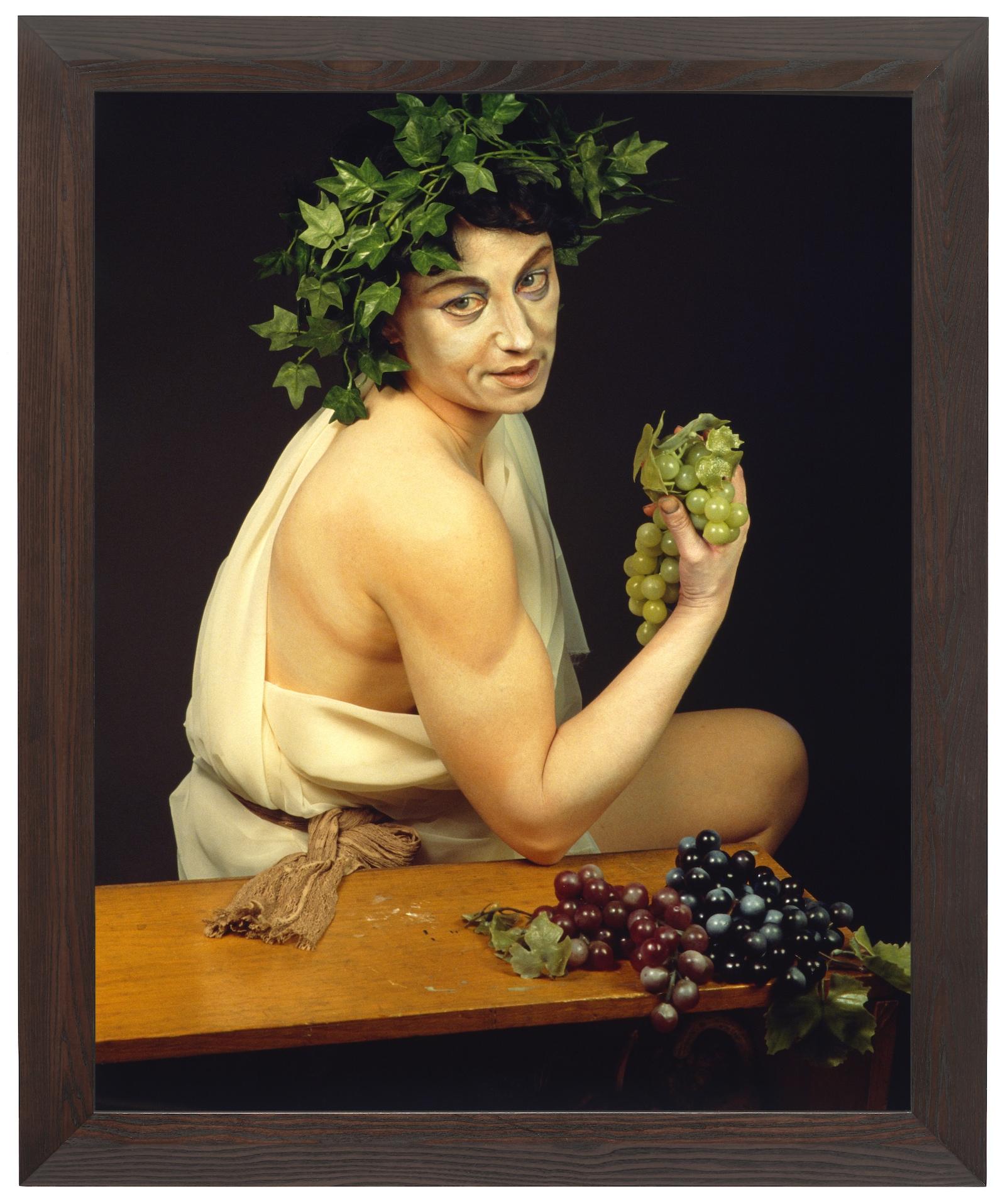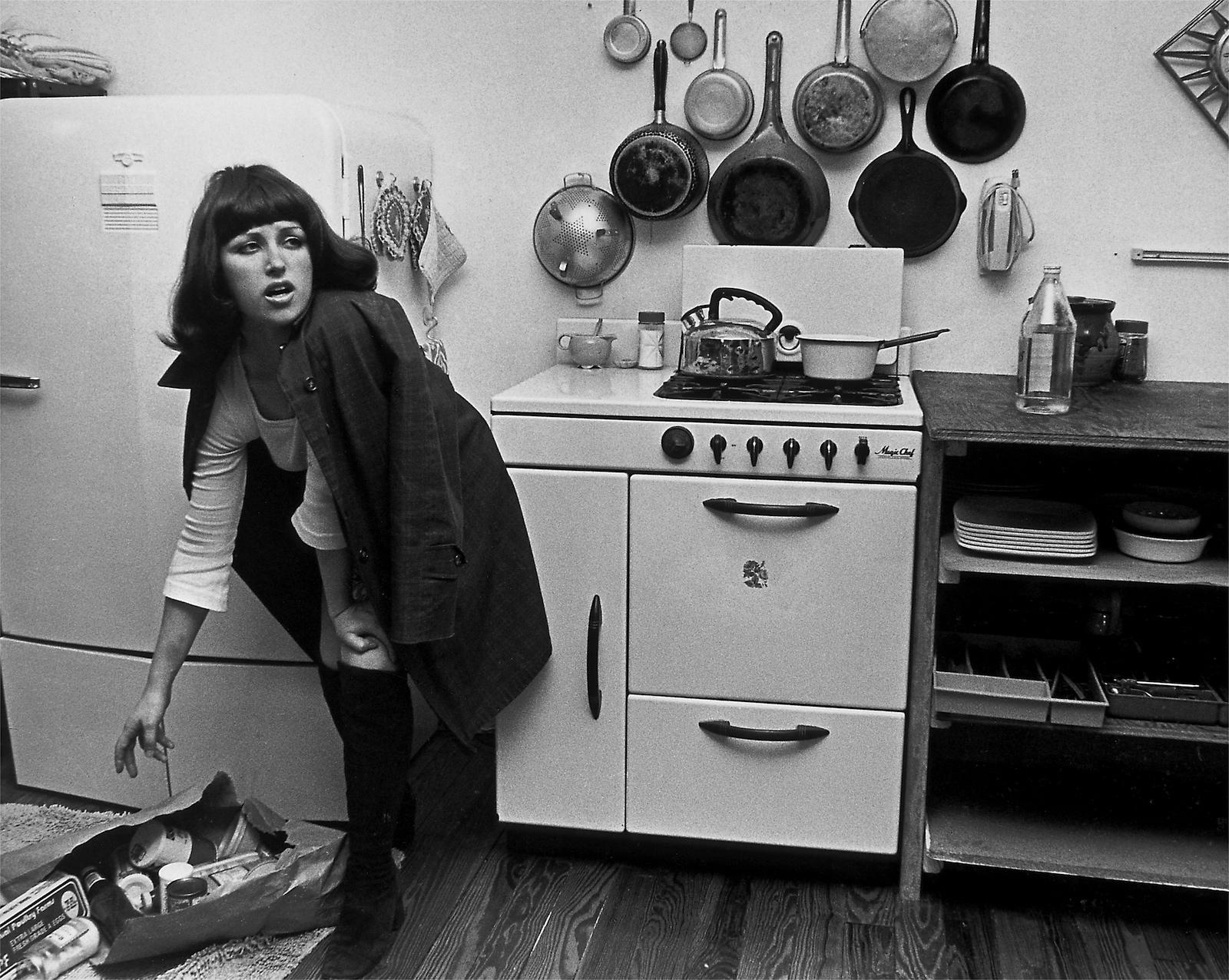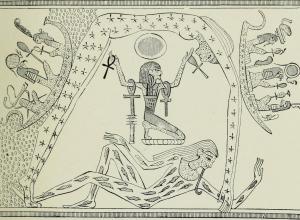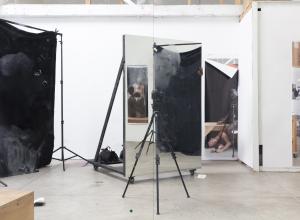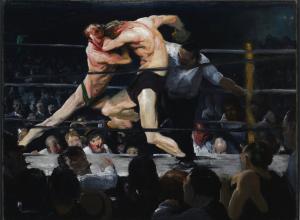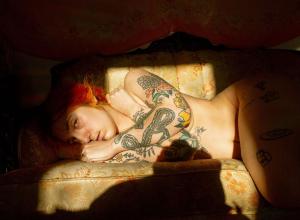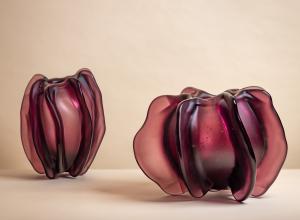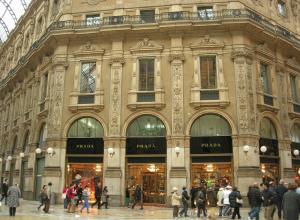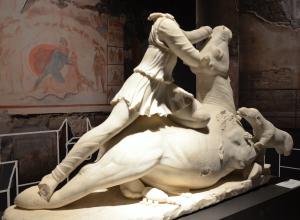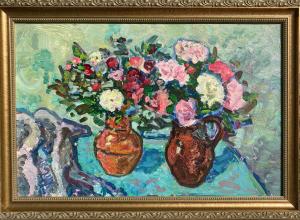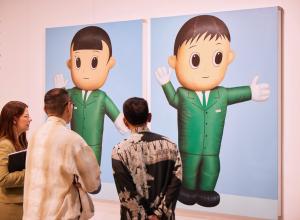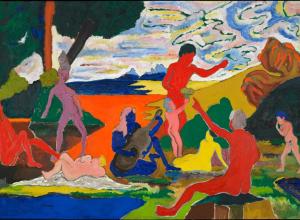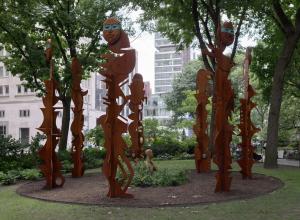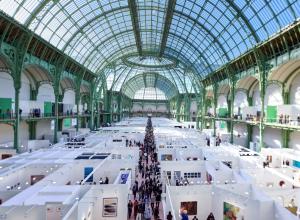Sherman is regarded as one of the most influential photographers of her generation. Born in New Jersey in 1954, she trained as a painter in her college years but soon switched to photography as she believed, “there was nothing more to say” through painting.
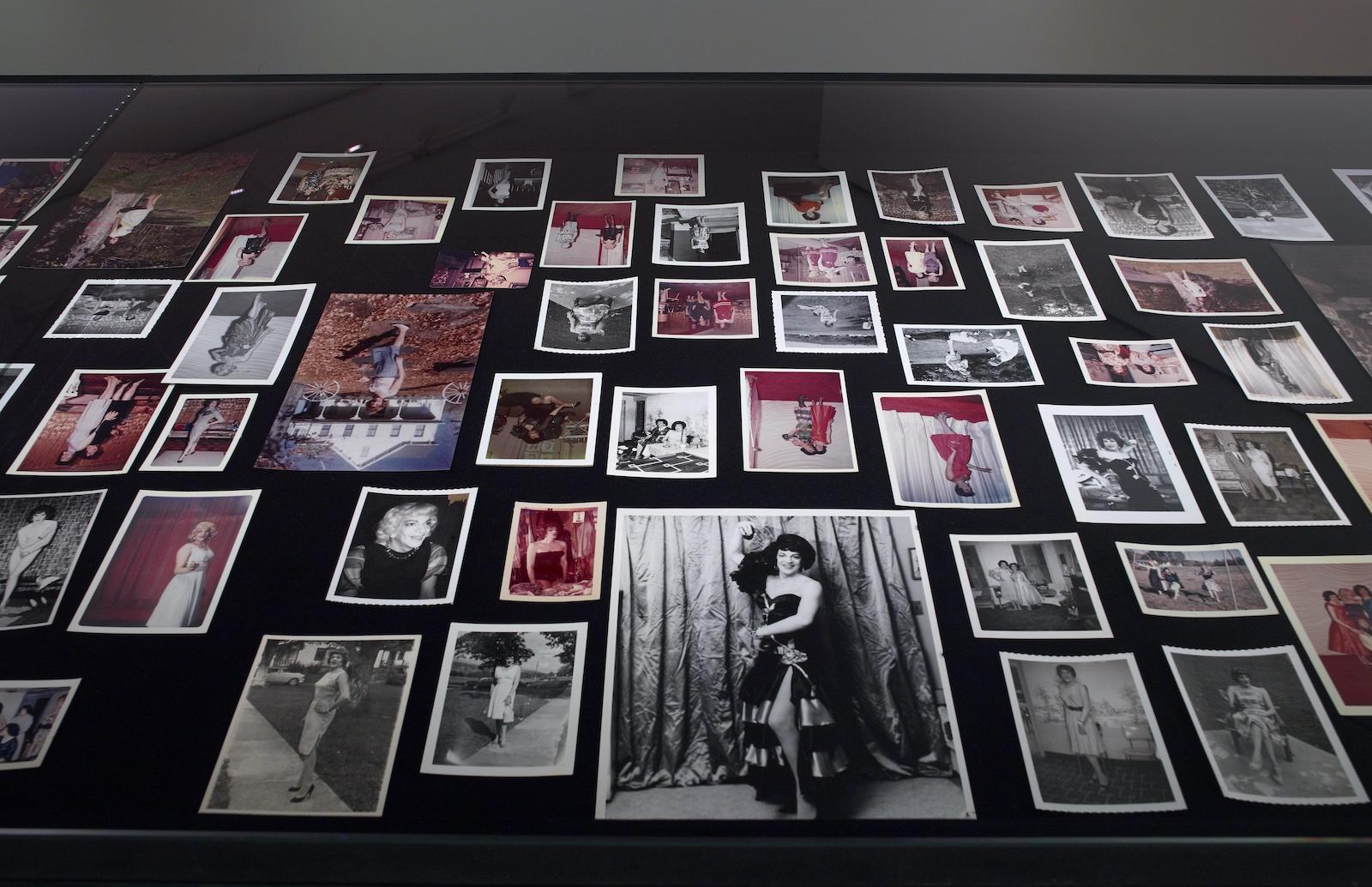
Exhibition view of #8220; Crossing Views, a selection of works from the Collection #8220, Louis Vuitton Foundation, Paris.
The Louis Vuitton Foundation in Paris is hosting the first European retrospective of the American photographer Cindy Sherman since her solo exhibition in 2006 at the Jeu de Paume. The retrospective brings together an impressive number of photographs, around one hundred and seventy, taken by Sherman between 1975 and 2020. It draws not only from her most known series—Untitled Film Stills, Rear Screen Projections, Fashion, History Portraits—but also from a new, more recent set on male and female couples. This is the largest European exhibition of Sherman’s works that covers her entire career.
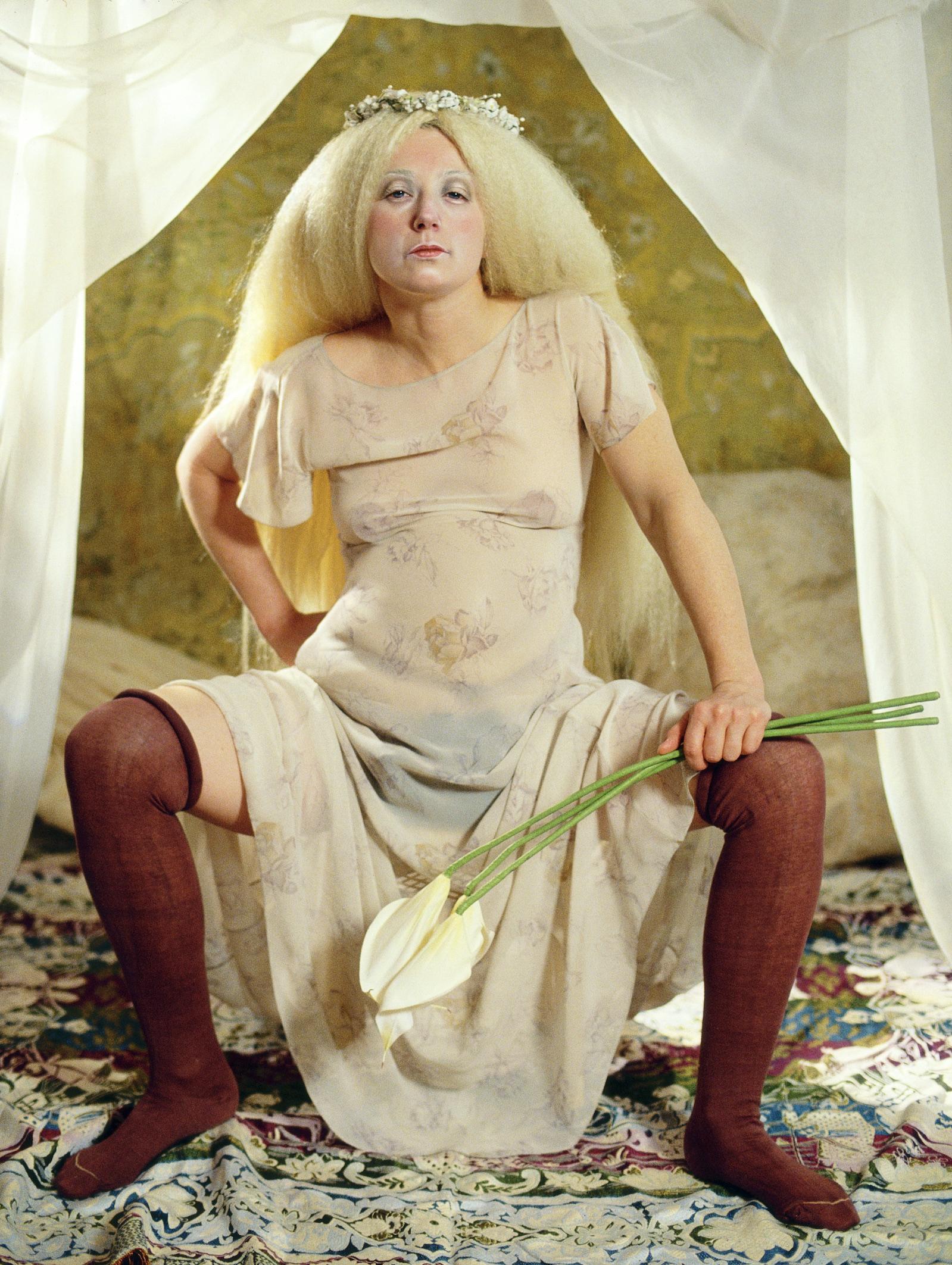
Cindy Sherman, Untitled 276, 1993.
In the late 1970s, Sherman was known as part of the Pictures Generation, a movement that, through montage and experimentation in a variety of media, aimed to reveal the constructed nature of images.
This retrospective offers not only her work but also Crossing Views, a parallel exhibition that centers around the theme of portraiture through different media. Among the many international artists featured in Crossing Views, it is possible to find Marina Abramovic, Damien Hirst, Andy Warhol, Samuel Fosso, and Ming Wong.
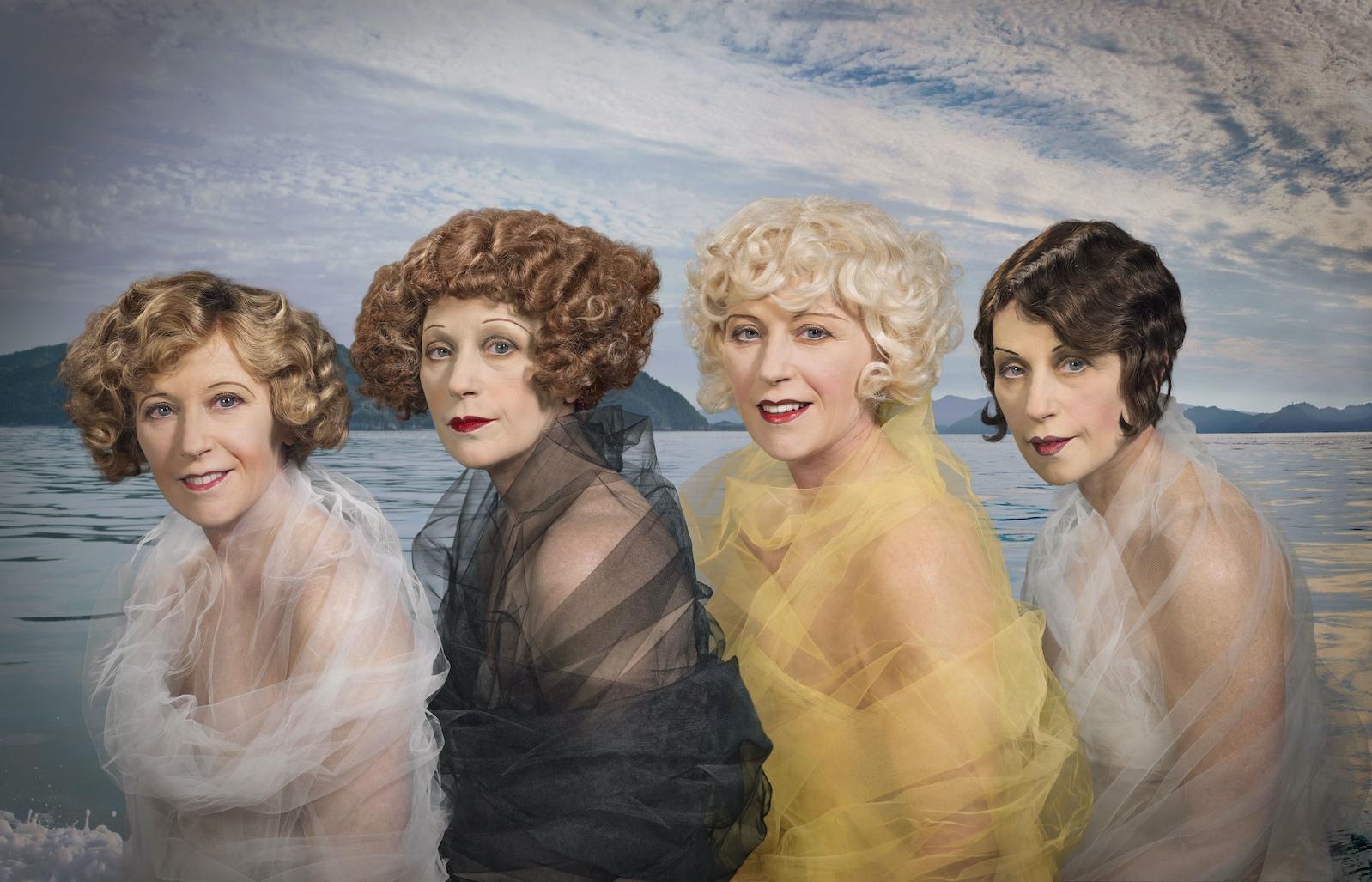
Cindy Sherman, Untitled 584, 2017-2018.
The distinctive aspect of Sherman’s work is that all her photographs are thoroughly and blatantly constructed. She is the main and only subject, the model and director, the technician, and the eye behind the camera. She depicts women more rarely men, yet never herself.
Through layers of make-up, prosthetics, wigs, and backgrounds, Sherman transforms herself into a B-movie actress, a clown, Caravaggio's Bacchus, Botticelli’s The Birth of Venus, and various incarnations of the Virgin Mary. Her photographs are not self-portraits. “Technically, maybe they are.” She points out, “but I don’t see those characters as myself.” Bernard Arnault, President of the Loius Vuitton Foundation, notes how “paradoxically, it is precisely by disappearing behind masks, make-up and disguises that Cindy Sherman has become an ‘icon’, one of too few artists recognized beyond the art world [...].”
Sherman constructs a world in which the false speaks the truth and the camera, contrary to the common belief, deliberately lies. Through deception and distortion, Sherman brings to the surface important issues such as gender identity, femininity, male and female archetypes, age and mortality, and the effect that the gaze has on our behaviors and self-perception. Her work ranges from hilariously funny to disturbing and unsettling, especially the series Sex Pictures (1992).
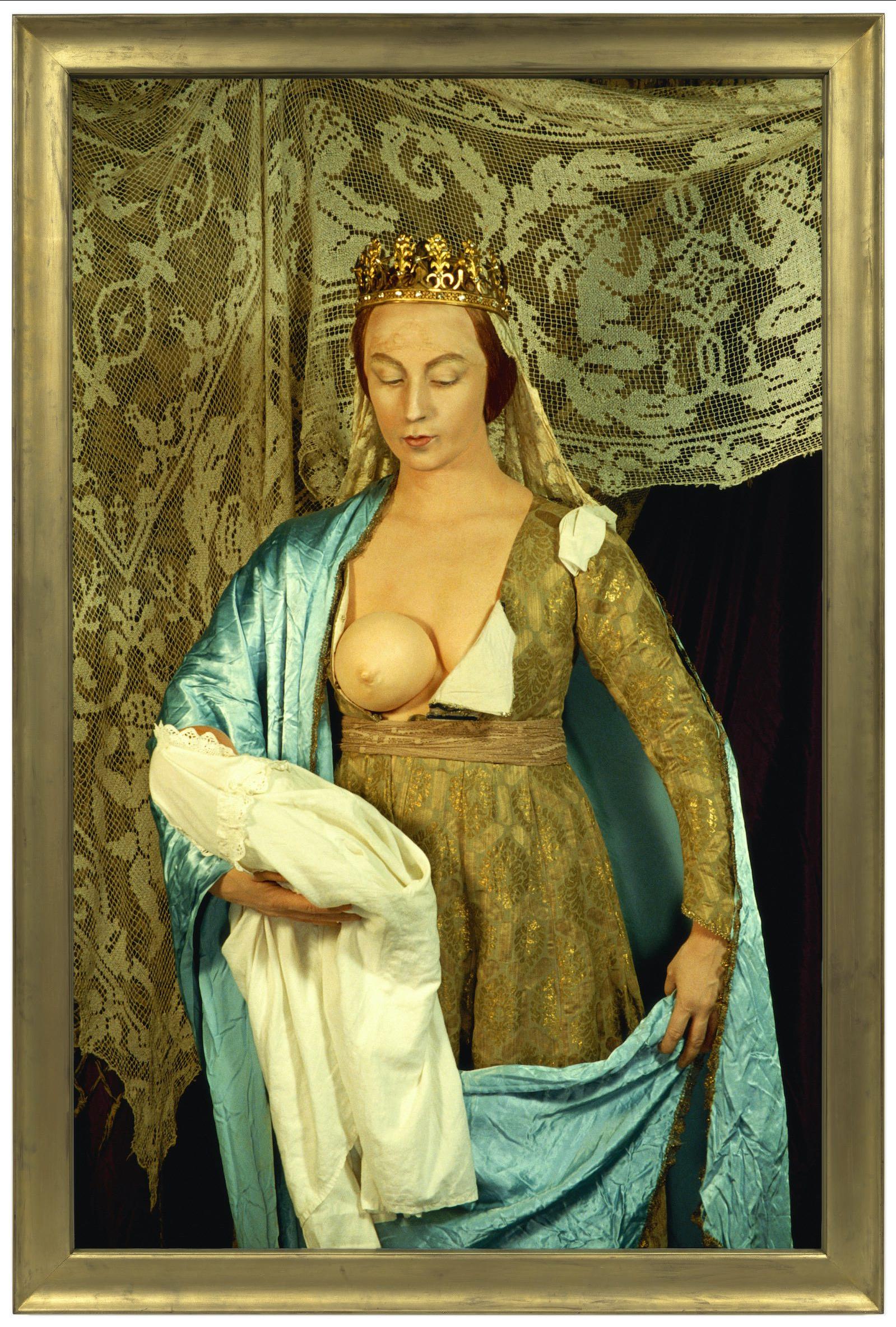
Cindy Sherman, Untitled 216, 1989.
Perhaps this is because her photographs show the lengths that we, as a society and especially as women, are ready to go in order to please others and live within the boundaries set for us. Are we dressing, talking, behaving, thinking like we do because of our own will or because of society’s expectations?
Despite the artificiality and the complexity of her art, Sherman’s art is approachable as it necessitates barely any knowledge of art history or religion in order to be understood. In a 1991 article by Luara Mulvey, Sherman was quoted saying, “When I was in school I was getting disgusted with the attitude of art being so religious or sacred, so I wanted to make something which people could relate to without having to read a book about it first.”
Through her continuous experimentations and the uninterrupted evolution of her art, Sherman has been revealing the absurdities of our society for the past forty years. By making the artifice evident, Sherman reveals the expectations that society places upon us, she challenges our views, and compels us to question our actions as well as our self-perception.
Cindy Sherman at the Foundation can be viewed online until January 31st, 2021.




